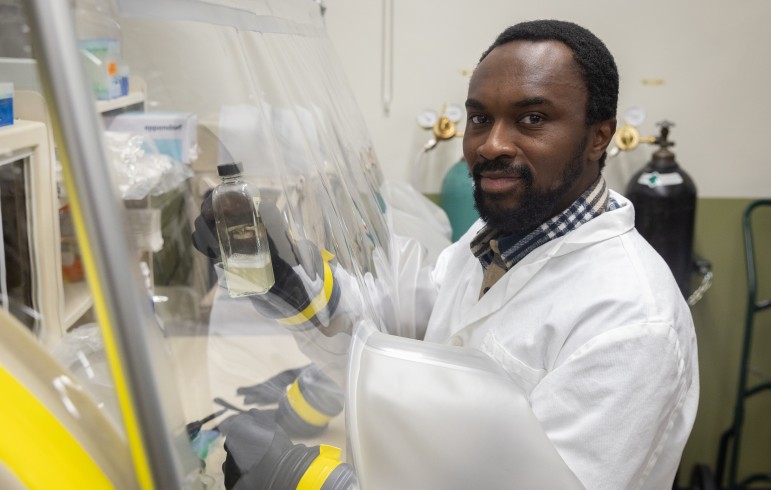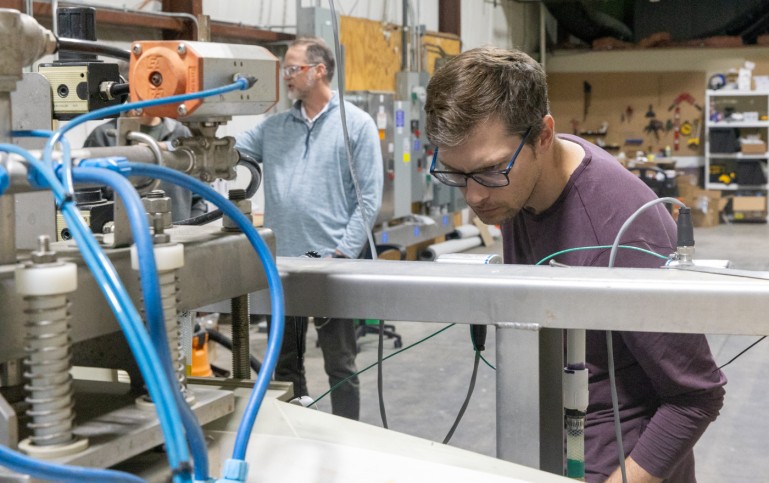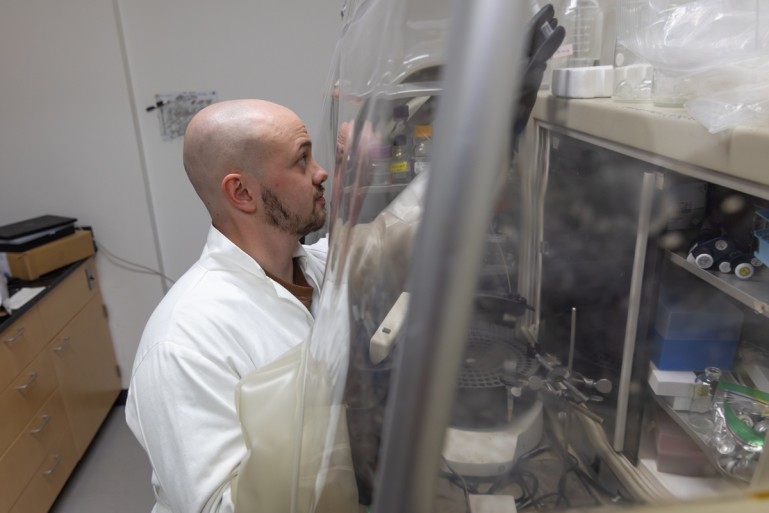Using a unique combination of advanced computational methods, University of Wisconsin–Madison chemical engineers have demystified some of the complex catalytic chemistry in fuel cells — an advance that brings cost-effective fuel cells closer to reality.
NASA’s Health and Air Quality Applied Sciences Team this past week tapped Tracey Holloway, a professor in the University of Wisconsin—Madison’s Nelson Institute for Environmental Studies, to lead the multi-institutional effort to help make environmental satellite data more accessible and useful.<
University of Wisconsin—Madison engineers have created high-performance, micro-scale solar cells that outshine comparable devices in key performance measures.
With hindsight, it’s easy to see how the closing of Wisconsin’s Kewaunee Nuclear Plant in 2013 was a harbinger of things to come.
The U.S. Department of Energy recently awarded more than $35 million through its Nuclear Energy University Program (NEUP) to support university-led nuclear energy research and development projects, including a total of about $3 million in grants for UW-Madison researchers.
Without question, the domesticated hybrid yeast that gives us lager beer is an organism worth many billions of dollars.
NovoMoto—an innovative startup co-founded by two University of Wisconsin–Madison engineering graduate students—won third place and $20,000 in the U.S. Department of Energy’s 2016 Cleantech University Prize National Competition on June 23, 2016.



